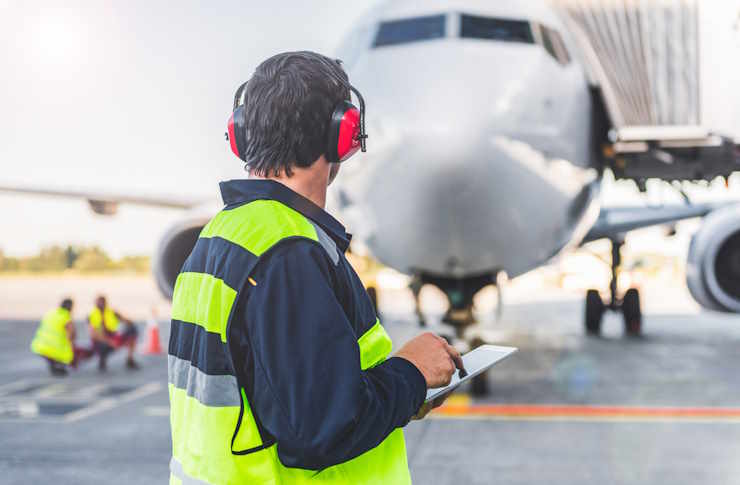Explore Aviation Training Programs Across United Kingdom
Individuals residing in United Kingdom have the opportunity to embark on a rewarding career in aviation through specialized training programs. These programs equip participants with essential knowledge and skills necessary for various roles within the aviation sector. With numerous training options available across different cities, aspiring aviation professionals can begin their journey towards a successful career.

What Comprehensive Aviation Training Programs Exist for Aspiring Professionals
Aviation training programs in the UK encompass a wide range of specializations designed to meet industry demands. The Integrated Airline Transport Pilot License (ATPL) program represents one of the most comprehensive routes for aspiring commercial pilots, typically lasting 18-24 months and combining theoretical knowledge with extensive flight training. Flight training organizations such as CAE Oxford Aviation Academy and Cranfield University offer structured programs that include ground school, simulator training, and actual flight hours.
For those interested in aircraft maintenance, Part 147 maintenance training organizations provide certified programs covering airframe, powerplant, and avionics systems. These courses typically span 18-30 months and combine classroom instruction with hands-on practical experience. The Civil Aviation Authority (CAA) maintains strict standards for these programs, ensuring graduates meet international aviation maintenance requirements.
Diverse Opportunities Available in the Aviation Industry
The aviation sector presents numerous career paths beyond traditional pilot roles. Aircraft maintenance engineers ensure fleet safety and airworthiness, while air traffic controllers manage aircraft movements in increasingly busy airspace. Aviation management positions encompass airport operations, airline management, and ground handling coordination.
Emerging opportunities include unmanned aircraft systems operations, aviation cybersecurity, and sustainable aviation technology development. The UK’s commitment to achieving net-zero carbon emissions by 2050 has created demand for professionals specializing in electric aircraft systems, sustainable aviation fuels, and environmental compliance within the aviation sector.
Essential Skills That Are Needed for a Successful Career in Aviation
Technical competency forms the foundation of any aviation career, but soft skills prove equally important. Communication skills are crucial, as aviation professionals must convey critical information clearly and concisely, often under pressure. Problem-solving abilities enable professionals to address unexpected situations effectively, while attention to detail ensures compliance with stringent safety regulations.
Teamwork and leadership capabilities are essential, as aviation operations rely heavily on coordinated efforts between multiple departments and individuals. Adaptability allows professionals to keep pace with technological advances and changing regulations. Mathematical proficiency, particularly in areas such as navigation, weight and balance calculations, and fuel planning, remains fundamental across many aviation disciplines.
How to Find Reputable Aviation Training Programs in the UK
Identifying quality aviation training programs requires careful research and consideration of several factors. The Civil Aviation Authority maintains a comprehensive list of approved training organizations, which serves as the primary resource for finding legitimate programs. CAA approval ensures that training meets regulatory standards and that qualifications will be recognized by employers and international aviation authorities.
Prospective students should evaluate program accreditation, instructor qualifications, training aircraft fleet condition, and job placement rates. Industry partnerships and relationships with major airlines or aviation companies often indicate program quality and graduate employability. Online reviews and testimonials from former students provide valuable insights into program effectiveness and student satisfaction.
| Training Program | Provider | Duration | Cost Estimation |
|---|---|---|---|
| Integrated ATPL | CAE Oxford Aviation Academy | 18-24 months | £80,000-£120,000 |
| Modular PPL to CPL | Bristol Groundschool | 12-18 months | £40,000-£70,000 |
| Aircraft Maintenance (Part 147) | Kingston University | 30 months | £15,000-£25,000 |
| Air Traffic Control | NATS Training Centre | 12-18 months | £20,000-£35,000 |
Prices, rates, or cost estimates mentioned in this article are based on the latest available information but may change over time. Independent research is advised before making financial decisions.
Career Prospects for Aviation Professionals in the UK
The UK aviation industry demonstrates strong recovery following recent global challenges, with increasing demand for qualified professionals across multiple sectors. Commercial airline expansion, particularly in the low-cost carrier segment, continues to drive pilot demand. The UK’s position as a global aviation hub ensures continued opportunities in aircraft maintenance, with major maintenance, repair, and overhaul facilities located throughout the country.
Air traffic control careers offer stability and competitive compensation, with the National Air Traffic Services (NATS) regularly recruiting new controllers. Management and operational roles within airports and airlines provide advancement opportunities for experienced professionals. The growing emphasis on aviation sustainability creates emerging career paths in environmental compliance, alternative fuel systems, and electric aircraft development, positioning the UK at the forefront of aviation innovation.
The aviation training landscape in the United Kingdom provides comprehensive pathways for individuals seeking rewarding careers in this dynamic industry. From traditional pilot and maintenance roles to emerging opportunities in sustainable aviation technology, the UK offers quality training programs that meet international standards. Success in aviation careers requires a combination of technical expertise, strong communication skills, and adaptability to evolving industry requirements. By carefully researching training options and understanding career prospects, aspiring aviation professionals can make informed decisions about their educational investments and career trajectories.




